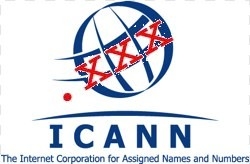The Approaching Wave Of Cybersquatting and Internet Scammers Thanks To .XXX
Call me old fashioned, but I don’t like the idea of new domain names, especially when people get to pick whatever words they want to place at the end of their web address. I grew up with .com and dang it, that’s all I want to see. An open season on internet domain names will just lead to chaos.
And yes, I’m aware that my lead-in paragraph was a little more obtuse than usual this time, but I assure you there’s a point to be made here. And that point is about curbing internet misrepresentation.
You may be wondering though how being able to pick whatever internet domain name you can imagine would lead to some form of fraudulent misrepresentation. Well, the answer is simple: internet traffic redirection, or in this case it would be more apt to call it internet traffic misdirection. If you’re still uncertain about what I mean, well just sit on your hands and wait until October 28th when the opt-out period for the domain name .xxx comes to an end.
Yes, my point, I know, I’m getting to it, but first just bear with me for a paragraph more so I can lay some background on you before diving into the incoherent future to come for the internet.
Now most of you may already be aware of the current space crisis facing .com domain names. Basically, they are simply running out and there may soon be a severely insufficient dearth of available and coherent web addresses for newcomers to register in the future. Much like the Y2K problem we experienced at the turn of millennium, the .com problem was one that most early internet engineers simply couldn’t fathom. Who could have known that the internet would change our lives like it has and become the multi-billion dollar industry it is today?
So, to remedy the dwindling number of .com web addresses, the Internet Corporation for Assigned Names and Numbers (ICANN), the group in charge of regulating web addresses, decided to open up the domain name spectrum to every Tom, Dick, and Sally looking to carve out their own custom web address online. And so begins our tale of future woe.
You see, with the domain name spectrum open, cybersquatters, scammers, and information phishers the world over now have new ways to rip off and irritate consumers and legitimate companies alike. By registering popular web addresses before true owners, cyber thieves and extortionists can redirect those unsuspecting web surfers to their fake and/or unrelated websites for all manner of foolery. We’re talking everything from identity theft to simply giving people the wrong information they need. And the .xxx domain name will be the very first wave of web addresses to show us this plan in action.
 As you can probably already guess, “.xxx” is a domain name that has been designated for the adult entertainment industry. Its sunrise period already began on September 7, while general availability begins December 6, where anyone can register a web address with the sexy domain. However, the problem is that if you own a .com or any other web address domain, your web address name can easily be registered under a .xxx domain. This could lead to some very embarrassing and/or dangerous situations for website owners and customers if a scammer buys out an identical .xxx web address.
As you can probably already guess, “.xxx” is a domain name that has been designated for the adult entertainment industry. Its sunrise period already began on September 7, while general availability begins December 6, where anyone can register a web address with the sexy domain. However, the problem is that if you own a .com or any other web address domain, your web address name can easily be registered under a .xxx domain. This could lead to some very embarrassing and/or dangerous situations for website owners and customers if a scammer buys out an identical .xxx web address.
ICANN has allowed those who own a registered trademark on their name to opt their name out of the available .xxx domain name list. However, this opt-out phase only last until October 28, 2011 and is a feature only available to block out registered trademarks, and even then will only last 10-years before a renewal is required. If you have a registered trademark and you want it out of the .xxx domains, then I suggest you opt out immediately.
So what can you do if you forget to take your trademark out of the running? Well, nothing basically. Even if you have a huge budget for legal representation, winning a domain name lawsuit is nigh impossible if the current holder of the disputed web address holds that address legitimately by the book.
See the chaos now? Bet keeping web addresses to .com doesn’t seem like that bad of an idea anymore, huh?

Comments